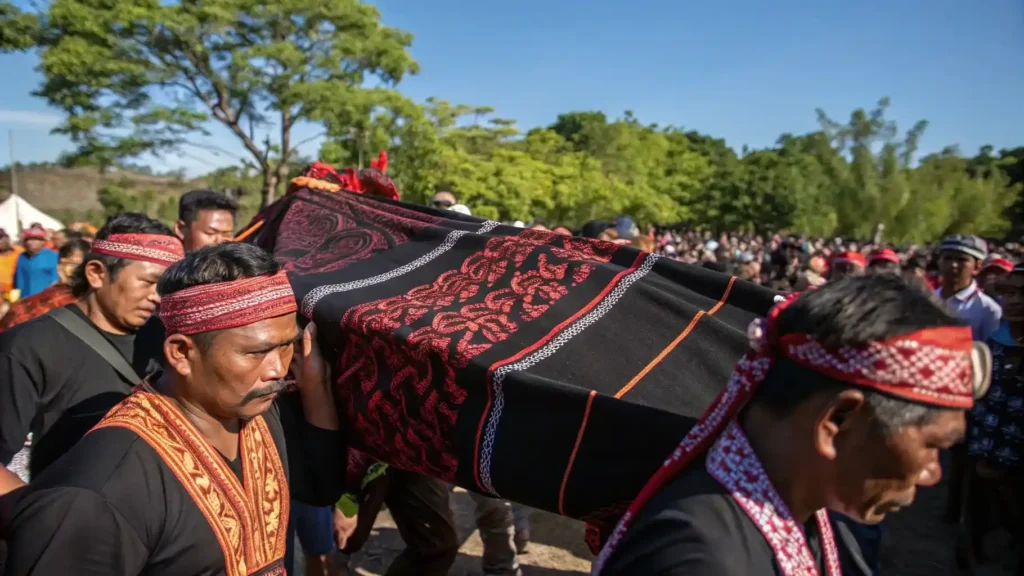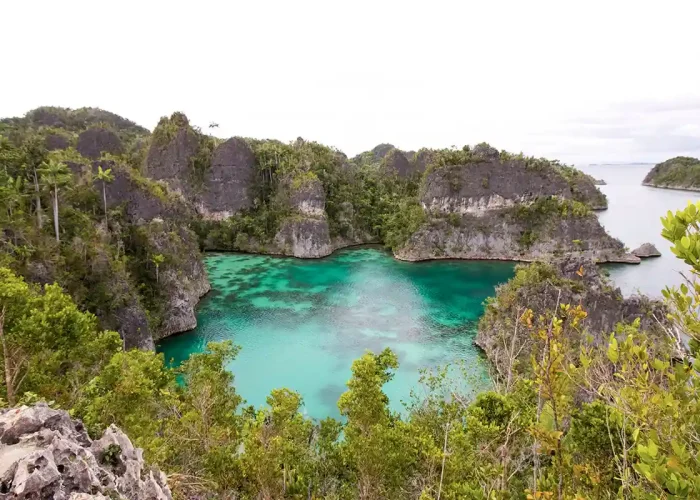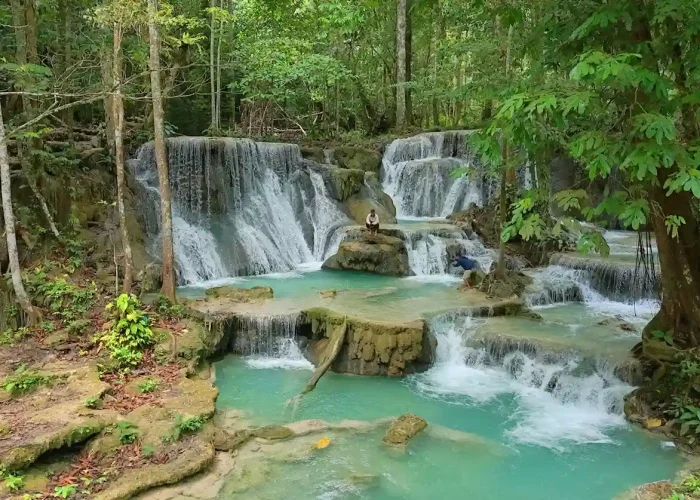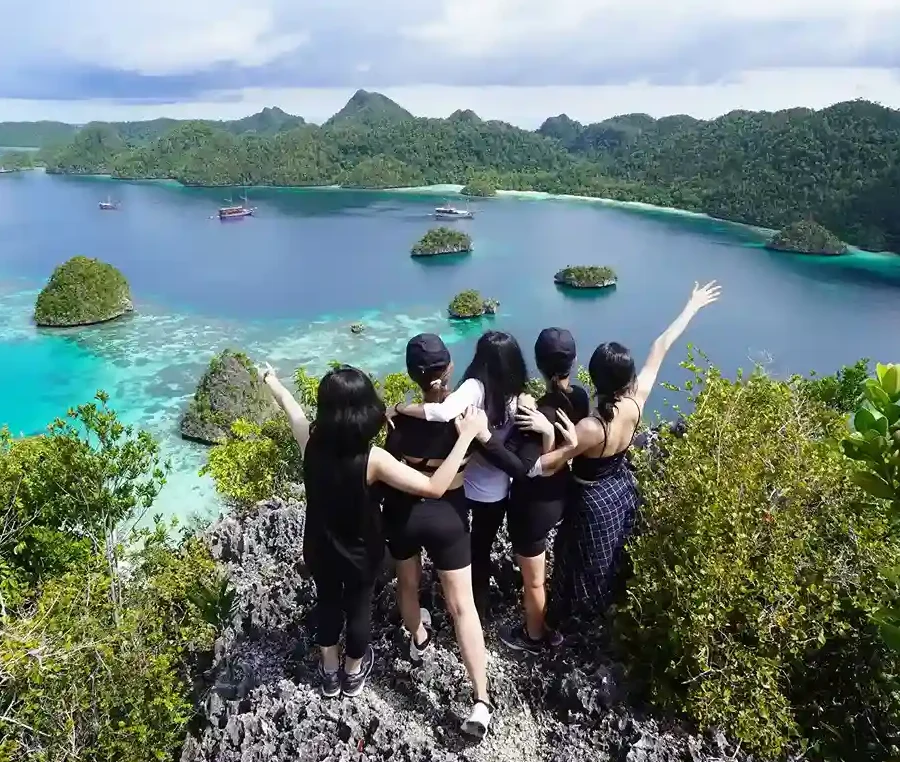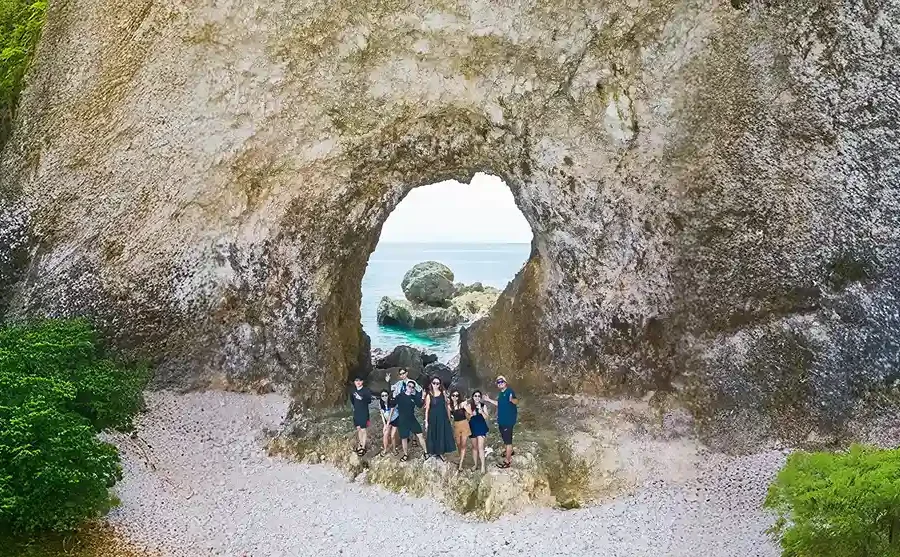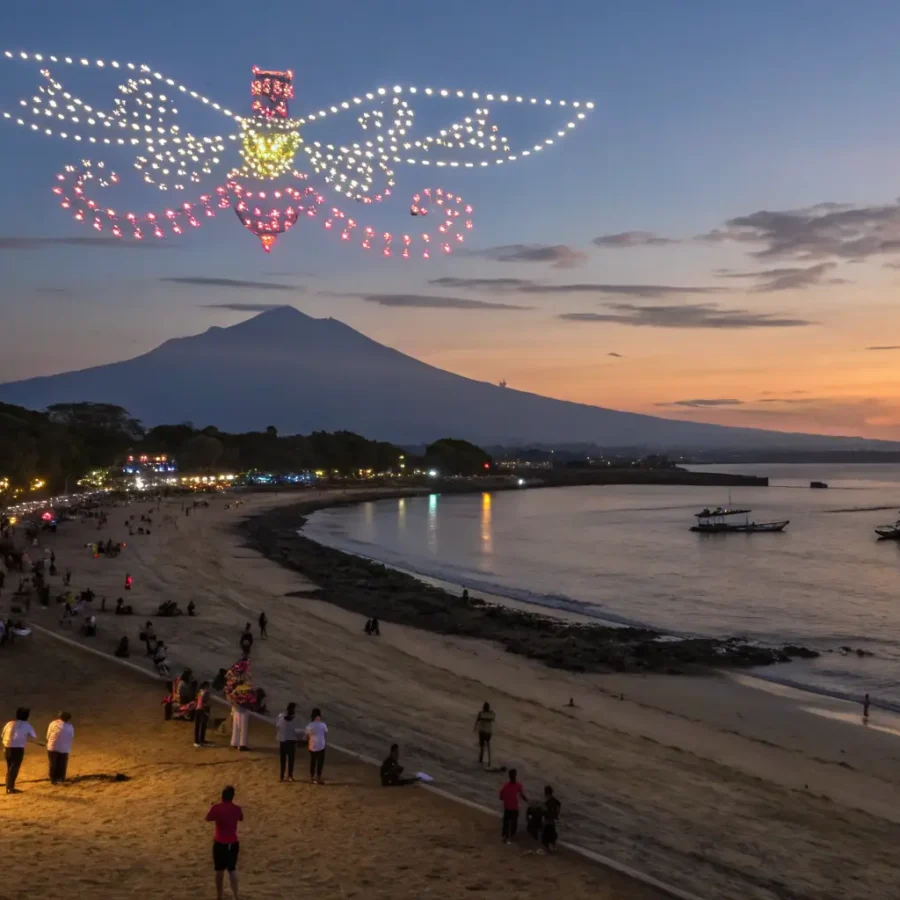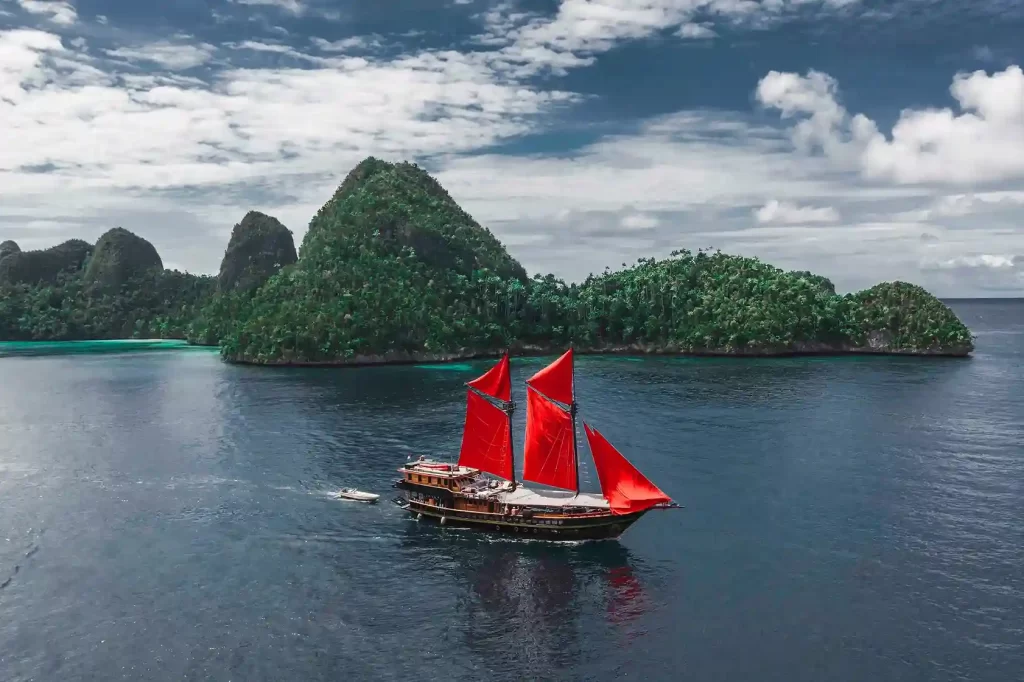When people hear the name Sumba, what usually comes to mind are vast savannahs, exotic beaches, or traditional villages that still thrive in the midst of modern times. But did you know that Sumba also holds a deep spiritual heritage? This is the Marapu tradition, one of the most sacred and distinctive elements of Sumba’s culture that remains alive to this day. Through this article, you’ll be invited to explore what the Marapu tradition is all about, the values it upholds, and how you can experience it firsthand when visiting Sumba.
Table of Contents
What is Marapu?
Marapu is the indigenous belief system of the Sumbanese people, passed down through generations long before major world religions arrived in the region. The Marapu belief is rooted in the worship of ancestral spirits and divine forces. In the local language, Marapu refers to the gods, ancestral spirits, and spiritual forces that govern human life.
The Marapu tradition is not only practiced through prayers or offerings but is also deeply embedded in the social and cultural structures of Sumbanese society. Major life events such as weddings, funerals, and the construction of traditional houses are all conducted through Marapu rituals. This belief system forms the foundation of communal life in Sumba, closely tied to traditional values. Despite the presence of mainstream religions like Christianity and Catholicism today, Marapu remains strong and deeply respected.
Core Values in the Marapu Tradition
Marapu is not merely a spiritual system but a way of life passed down from one generation to the next. Its values shape the Sumbanese worldview—from their relationship with nature and social life to how they treat others and all living beings. This tradition is deeply woven into daily life, offering profound meaning in every aspect of it. To better understand the philosophy behind Sumba’s unique traditions, here are the key values within the Marapu belief system that form the foundation of their way of life:
Reverence for Ancestors
In the Marapu belief, ancestors never truly leave. They are believed to continue watching over, guiding, and protecting their descendants. Ancestors are seen as intermediaries between humans and the Creator, which is why they are held in such high esteem. Nearly every ritual or traditional ceremony begins with offerings or prayers to ancestral spirits. Even before building a house or clearing new land, the Sumbanese people first seek the blessing of their ancestors. This reflects the importance of maintaining a spiritual connection with their forebears as an expression of respect and gratitude for the life they have passed down.
Balance Between Nature and Humans
Marapu teaches that humans are not masters of nature but rather part of the universal harmony. Nature is considered the dwelling place of various spirits, including ancestors and protective spirits. Therefore, all human activity must be carried out with care and without harming nature.
This concept is reflected in many aspects of Sumbanese life, such as customary rules in farming, hunting, or house-building. For instance, cutting down large trees cannot be done carelessly as it may disturb the guardian spirits. Through this value, Marapu instills the importance of living in harmony with nature to ensure the well-being of all.
Mutual Cooperation and Solidarity
Within Marapu culture, the spirit of togetherness is held in high regard. Everything is done collectively, from building traditional houses (uma) and organizing ceremonies to farming. The community believes that life can only run smoothly when it is lived together. This value of mutual cooperation goes beyond physical labor and extends to the spiritual realm as well. For example, during major ceremonies like traditional funerals, everyone in the village takes part, whether as contributors, organizers, or ritual participants. This fosters strong solidarity and a deep sense of shared cultural identity.
Sacredness of Traditional Ceremonies
Every ceremony in the Marapu tradition is not just a ritual but a bridge between the physical world and the spiritual realm. Ceremonies must follow strict protocols, from choosing the right time to the use of specific symbols in offerings. Failing to adhere to these procedures is considered disrespectful to the spirits and ancestors.
This sense of sacredness creates an atmosphere of reverence and significance in every ceremony. People are willing to dedicate time and resources to ensure that the ceremonies are performed perfectly. This shows how vital tradition is as a form of devotion to ancestors and respect for higher powers.
Heritage as a Sacred Responsibility
In Marapu belief, inheritance from the ancestors, be it land, traditional houses, or customs, is not seen as private property, but as a sacred responsibility. Each generation bears a moral and spiritual obligation to preserve what has been passed down. This includes maintaining the integrity of traditional homes, continuing rituals, and transmitting life values to future generations.
Neglecting this heritage is believed to disrupt life’s balance and may even bring misfortune. That’s why the people of Sumba are steadfast in upholding their traditions despite the pressures of modernization. They believe that by preserving their ancestral legacy, they are also preserving their identity and life’s harmony.
Rituals and Symbols in the Marapu Tradition
The Marapu belief is not only alive in spiritual thoughts and prayers, but also powerfully expressed through various rituals and traditional ceremonies. These traditions are tangible expressions of the bond between humans, ancestors, and nature. The people of Sumba believe that maintaining harmony with Marapu cannot be done through thought alone, but also through action in daily life. That is why traditional rituals are a vital means of sustaining that balance.
Each ritual in the Marapu tradition carries its own significance and set of rules, from self-purification to honoring ancestral spirits. These rituals usually align with specific times in the customary calendar and are passed down from generation to generation. Often, they are communal affairs that involve the entire community. Here are some of the major rituals in the Marapu belief system that are still preserved today:
Pasola
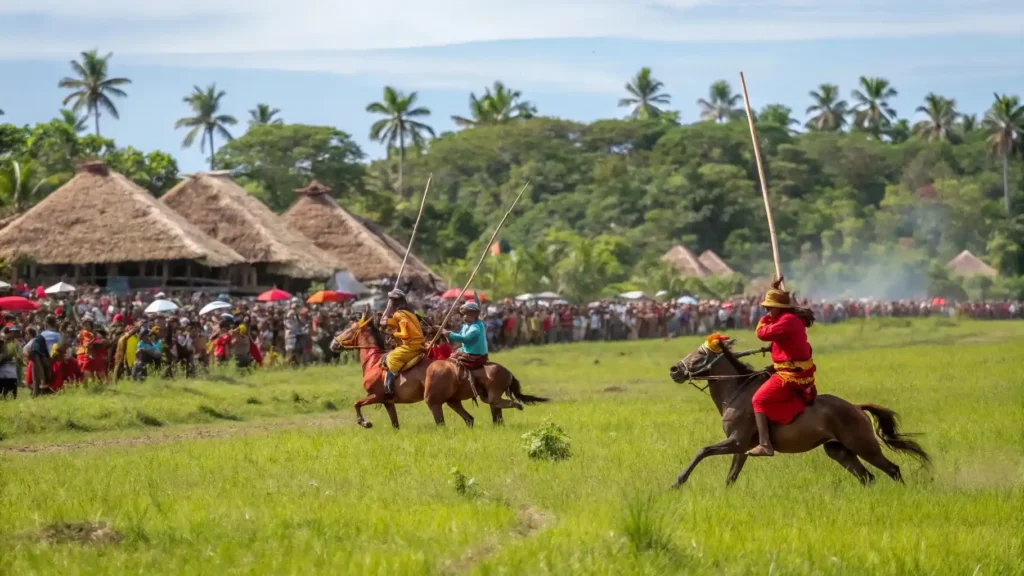
Pasola is a traditional war ritual unique to Sumba, held as part of the planting season celebrations. Two groups on horseback hurl wooden spears at each other in an open field. Although it appears to be a battle, Pasola is not merely a competition, it symbolizes the sacrificial spilling of blood to fertilize the land. This tradition is believed to bring blessings and ensure a bountiful harvest.
The Pasola ritual is strictly regulated by customary elders and is only performed after the appearance of certain natural signs, such as the arrival of Nyale (sea worms). Pasola demonstrates how the Marapu tradition weaves together spiritual, social, and ecological elements into one sacred cultural moment. It also serves as a symbol of cultural identity and collective spirit for the people of Sumba.
Read more: Pasola Tradition in Sumba: A Meaningful and Fascinating Cultural War
Wulla Poddu
Wulla Poddu is a sacred month in the Marapu belief, observed for about a full month. During this time, the Sumbanese refrain from worldly activities such as parties, weddings, or construction. Instead, they focus on spiritual reflection and purification. Wulla Poddu is a sacred period to mend relationships with both ancestors and nature.
Rituals during Wulla Poddu include communal prayers, animal offerings, and sacred art performances such as traditional dances and chants. People gather in traditional houses and sacred sites to perform these ceremonies with solemn devotion. The tradition underscores the importance of harmony, spiritual cleansing, and honoring ancestral values.
Traditional Healing
In the Marapu tradition, healing is not only about curing physical ailments but also about restoring balance among humans, nature, and ancestral spirits. Illness is often seen as a symptom of spiritual or social imbalance. Thus, healing involves a series of rituals aimed at reconnecting with ancestral powers. These ceremonies are led by customary leaders and often involve animal sacrifices and specific plants.
In practice, the community uses natural elements as part of the healing process. Chickens, pigs, betel leaves, areca nuts, and sacred water are believed to possess the power to heal and neutralize negative energy. Sacred water, in particular, is an essential element that has been blessed through special ceremonies. While deeply rooted in tradition, the Sumbanese are also open to modern medicine if symptoms do not improve within a few days.
Funeral Ceremonies
In the Marapu tradition, death is seen as the beginning of a journey to the spirit world, or Prai Marapu. Therefore, funerals are conducted with reverence and respect to ensure the departed soul is accepted by the ancestors. The body is not immediately buried; instead, it goes through a series of rituals involving the entire community, extended family, and customary leaders. Funerals also reflect a person’s social status through offerings, traditional chants, and megalithic burial practices.
One unique aspect of this ceremony is that the body is wrapped in multiple layers of handwoven cloth and may be kept in the house for years before being buried, during which time it is still given food and drink daily. This tradition reflects the emotional and spiritual closeness between the living and the departed and serves as a strong testament to the enduring legacy of the Marapu tradition.
Read more: Sumba Tour 2025: A Dream Vacation Spot According to Forbes
Explore Sumba with IndonesiaJuara Trip
The Marapu tradition is more than just a belief system, it’s a living cultural heritage that shapes the identity of the Sumbanese people to this day. From the high-energy ritual of Pasola to the spiritually rich funeral ceremonies, each reflects a deep philosophy and respect for nature, ancestors, and life itself. Exploring this tradition not only broadens your horizons but also builds a sense of admiration for the preserved richness of local culture. Sumba is not only breathtaking in its landscapes but also profound in its values and meaning.
If you want to truly experience the wisdom of this culture while exploring the exotic nature of Sumba, this is the perfect time to embark on a journey with IndonesiaJuara Trip. We’re ready to take you through traditional villages, witness authentic rituals, and enjoy the untouched beauty of Sumba. With experienced local guides and top-tier service, your journey will be more meaningful and enjoyable. Join Sumba Tour with IndonesiaJuara Trip and feel the magic of the Marapu tradition for yourself!


